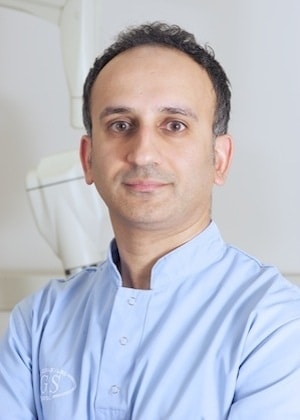Teeth Whitening Bayswater West London
There are several reasons why you might consider teeth whitening at Garden Square Dental Practice ( based in Bayswater, West London):
- Yellowing enamel
- White spots
- Flourosis
- Tetracycline staining
- Trauma
- Root filled tooth
Teeth whitening is a highly effective way of achieving a gleaming smile that can help boost confidence and self esteem. This can be life changing in situations where you might be required to appear on screen (for example, special occasion photos, video calls or blogs), meeting someone new or getting ready for a job interview. All too often despite a regular cleaning regime people find that their teeth become stained and discoloured due to the nature of their lifestyle. Teeth can become discoloured and stained by the food and drink we consume, or from habits such as smoking and even teeth grinding.
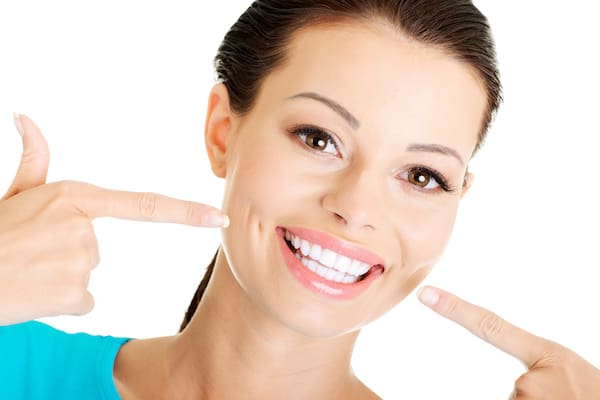
We are able to effectively and safely offer teeth whitening treatments to return the natural lustre of your teeth without removing any of the tooth structure. This is done by applying bleaching gels to the teeth either in the dental chair or at home using our custom made mouth tray system. These gels have been rigorously tested and are safe to use given the advice of a dental expert. Side effects are rare and might include sensitivity or gum irritation. These are usually short lived and in most cases easily managed with desensitising pastes. Some people might be more vulnerable to this than others, which is why it is recommended to have a dental examination before considering teeth whitening in order to rule out any underlying dental problems.
Our Teeth Whitening Dentists
Teeth Whitening Gallery
Teeth Whitening at Garden Square can have an immediate impact on your smile. The photos in this gallery will give you some idea of what can be achieved pain-free and within a relatively short space of time. Why not book in for a free 15-minute teeth whitening consult.
Teeth Whitening Before and After Photos
Case 1
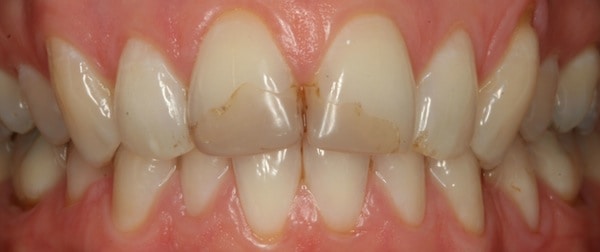
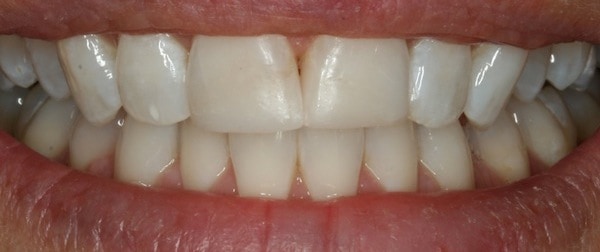
Case 2
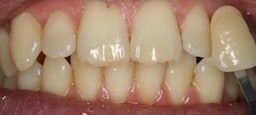
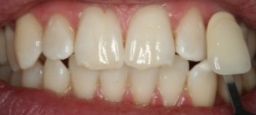
Case 3
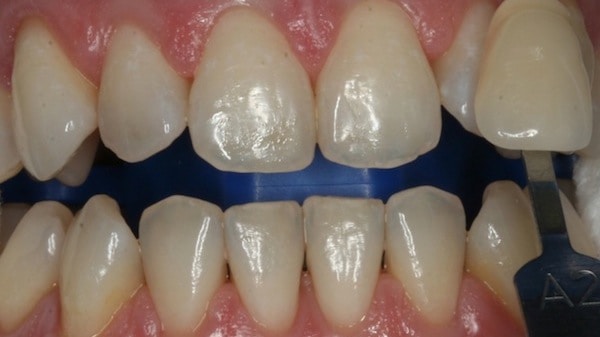
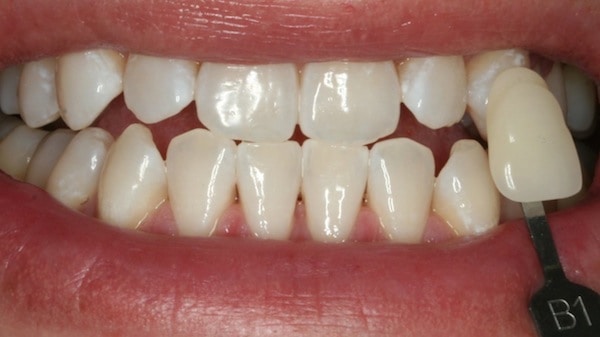
Case 4
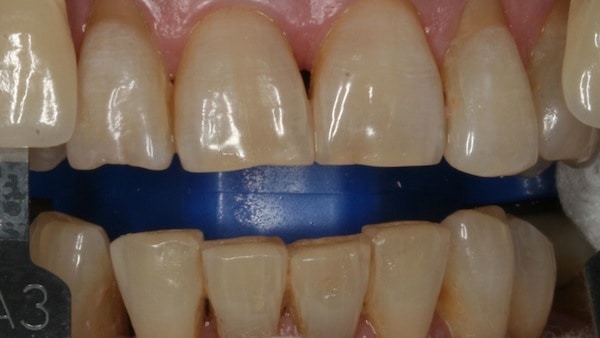
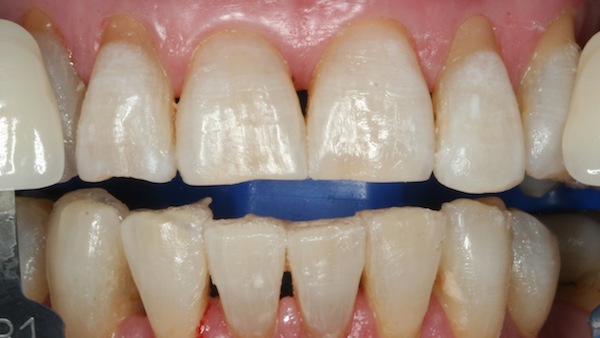
Case 5
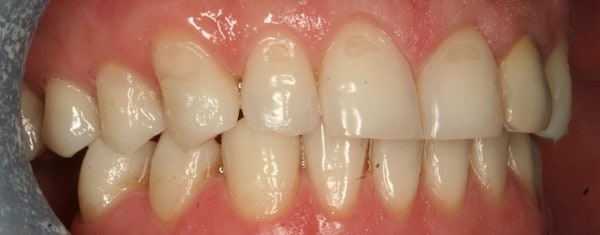
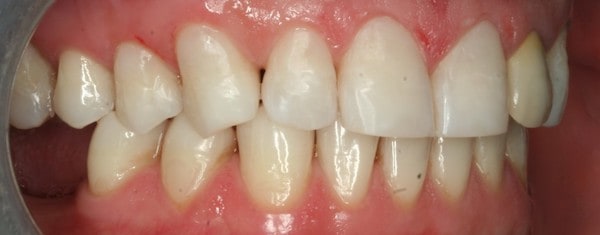
Case 6
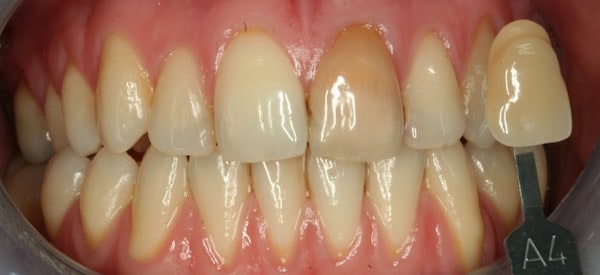
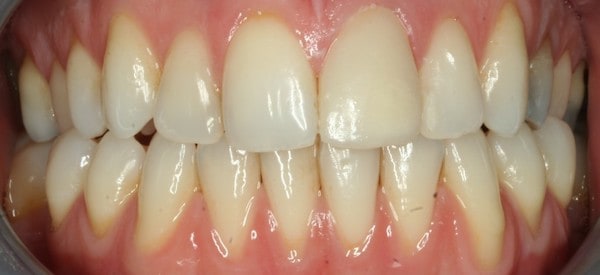
Yellowing Enamel
Certain foods and drinks such as black coffee, red wine and turmeric can quickly build up stain on the teeth. Whilst this can be largely cleaned off by the hygienist, some of this staining may become part of the tooth. This is called intrinsic staining. Smoking can have a similar effect, with heavy smokers experiencing significant levels of intrinsic staining. Whilst the results of teeth whitening are only transient, perhaps lasting for up to 18 months, this treatment can be a powerful incentive to give up smoking. Other dietary factors that cause discolouration are acidic foods and drinks such as citrus fruits, fizzy drinks (including sparkling water) and fruit juices. Persistent ingestion of citrus, carbonic and phosphoric acids contained in fruits and fizzy drinks wear down the enamel, revealing more of the dentine layer underneath which has a naturally yellow colour. Exaggerated enamel loss from tooth grinding or substance abuse will also allow the dentine layer to show through causing a yellowing appearance of the teeth. As we get older, ageing will also affect the colour of your teeth as the level of enamel changes. Yellowing enamel is straightforward to whiten at home in about 3 weeks with standard home whitening kits using 10-16% carbamide peroxide gels.
Fluorosis
If there is excessive fluoride ingestion (usually in drinking water) during the formation of teeth, white, yellow, orange or brown stains can appear in some teeth, a condition known as fluorosis. In fluorosis, the enamel of the tooth might also look pitted, which can be a surface feature of the condition. Teeth whitening with 10-16% carbamide peroxide over the course of 4 weeks can help to lighten the staining. The deeper the staining the harder it is to lighten, so a slightly more prolonged course of whitening may be required.
White Spots
These bright white ‘freckle’ type spots are usually most noticeable on the front teeth and can be associated with chronic infections, high temperatures and medications during early childhood, or in the developmental stages of a baby. This can in turn, affect how the enamel of the tooth forms. White spots can be successfully treated at home approximately over the course of 3-8 weeks depending on the severity.
Tetracycline
Tetracycline is a commonly prescribed antibiotic often used for the treatment of acne and other skin conditions. Patients with this type of staining range from mild to severe discolouration which can vary in colour from grey, blue, yellow and brown. The colour and pattern of discolouration depend on the type of medication, dosage and duration, relating to when the teeth were at the developmental stages. A reasonable improvement can be achieved for these patients with by completing home whitening for up to 6 months depending on the severity.
Trauma
Accidents such as falling off a bicycle as a child, sporting injuries or swimming pool accidents can all lead to a tooth becoming significantly discoloured as a result of trauma. It is important to determine if the tooth is alive (vital) or dead (non-vital) before treatment can be recommended. The dentist can establish this by testing the tooth with extremes of temperature or a small biopsy of the tooth. If the tooth is alive, home whitening in stages is recommended. Firstly with a tray and gel concentrated on the discoloured tooth, followed by a new tray to whiten the rest of the teeth to give an even appearance.
Root Canal Treated Teeth
Teeth that have been root filled (had root canal treatment), can become discoloured over time. Internal bleaching is a technique which can be carried out in an attempt to whiten the tooth whilst avoiding the need for invasive dental work such as crowns or veneers. By clearing out the filling at the back of the tooth (placed to seal the root canal treatment) space can be made to place some high strength carbamide peroxide gel inside the tooth which is then covered with a temporary filling. The gel then sits inside the tooth for 2 weeks bleaching the enamel ‘inside out’. Results can vary, but this treatment may need topping up every 2 weeks until the colour of the tooth matches the rest of the teeth.
Teeth Whitening Frequently Asked Questions
I had a teeth-whitening treatment done at the practice in summer 2017. Following my treatment, I thoroughly recommend the practice. All of the staff at the practice were extremely helpful and professional, and I felt very well cared-for at all stages of the treatment.
Please contact us for Teeth Whitening using this form

